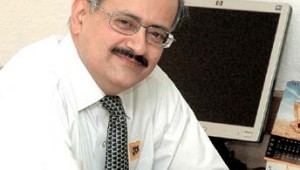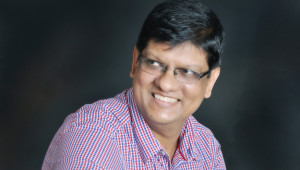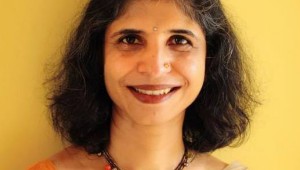 Dr. Nachiket Mor, Chairman – SughaVazhvu Healthcare and Former Deputy MD of ICICI Bank has taken to social entrepreneurship in the health sector as his second career and is very passionate about it. Addressing students of Manipal Institute of Management recently, he emphasized the need for real understanding, not superficial knowledge and hard work, if Indians are to solve large-scale social and economic problems. Edited excerpts:
Dr. Nachiket Mor, Chairman – SughaVazhvu Healthcare and Former Deputy MD of ICICI Bank has taken to social entrepreneurship in the health sector as his second career and is very passionate about it. Addressing students of Manipal Institute of Management recently, he emphasized the need for real understanding, not superficial knowledge and hard work, if Indians are to solve large-scale social and economic problems. Edited excerpts:
My current passion is the challenges of growth and development in India. Despite all the growth and success that we have enjoyed we are still one of the poorest countries in the world. One of the popular indicators that are used to decide poverty line is 1.25 dollar a day. With this about 35% of our population falls below the poverty line. At 2 dollars a day is taken, 70% of our population will fall below the poverty line. The US defines its poverty line at 10 dollars a day. If we take half of that our poverty line will include 97% of our population.
So, one of the challenges we have is that while we are experiencing growth – It is very likely that by 2015 we could become one of the richest nations in terms of size – but if we don’t do something about it we will also be one of the poorest nations in the world. What are the steps that we should take? What do we do as individuals? Think about where can your contribution be? Relief programs are important but that cannot be the primary development strategy. We have to think where the impediments are; what is not allowing people to move ahead and what can we do systematically to try and address these issues? The list is very long. What appeals to me are – elementary education, healthcare and access to finance.
Healthcare is not just about birth
We have a large pool of trained healthcare workers yet we have the worst health care systems in the world. The states that we applaud Kerala, Tamil Nadu they are nice relative to Bihar but if you compare them to any health system, for example to Thailand, we are in a very bad position. When we say primary healthcare in India we focus on one episode in a person’s life which is their birth and vaccination. If I ask somebody what is the cardio vascular disease strategy of the country, we have none. We are simply opening hospitals and more and more people are showing up but we don’t have a strategy in place.
One of the issues that we are facing is that politically, healthcare is not as important as education or some other schemes. People do not value healthcare directly. If I look at the proportion of money that the government spends on health care we are 174th in health care I don’t think activism is going to help much. Like South Korea unless the country crosses 5000 to 6000 dollars per capita, the population does not regard healthcare as its primary need. This is why we are able to function with a very broken healthcare system and continue to exist without strong unrest. That means there is an enormous opportunity for the private sector.
The private sector has gotten very comfortable in setting up large tertiary institutions that are spinning off cash. They are benefiting from the disease burden – while supply is increasing rapidly, sick people are increasing even faster and capacity to pay is going up.
Unless we fix these issues on the ground as quickly as we can we will not be able to move forward. We have enough people, momentum; people are spending enough money in terms of total expenditure on healthcare. 60- 70% is going to tertiary care hospitals while 70% has to go to primary care.
Recently I spent two weeks in eastern UP in one of the poorest parts of the country. I saw a financial institution that serves 500,000 people. They have bypassed the computer entirely. They use a mobile phone. They can tell you what is happening in their entire catchment area within half an hour of the activity having taken place. They can close their books at 5 every evening and upload for the next day. Innovation is not happening in the big banks, the big banks have too much at play, and we cannot be innovative. We have to steady the titanic; we cannot be the little boat that is darting here and there. Innovation is happening in smaller institutions.
After 25 years of work in the banking sector and 5-6 years of intensive work in the social sector, I think what is missing is capability, deep technical capability. What this institution offers you and what I would invite you to make the best of that opportunity is to build that depth of capability that you need because the country’s problems are not such that mere hard work will solve it. In a country of 1.2 billion people, you can work 48 hours a day, it’s not going to solve the problems. What you need is the ability to think about complexity, understand the underlying working of what is going on and then approach the problem.
If you decide if you are going to be agents of change, Mahatma Gandhi’s words “Be the change you want to see,” if you want to be that you have to build capability. You have to be good at what you do and spend time getting to know it really well.











Recent Comments